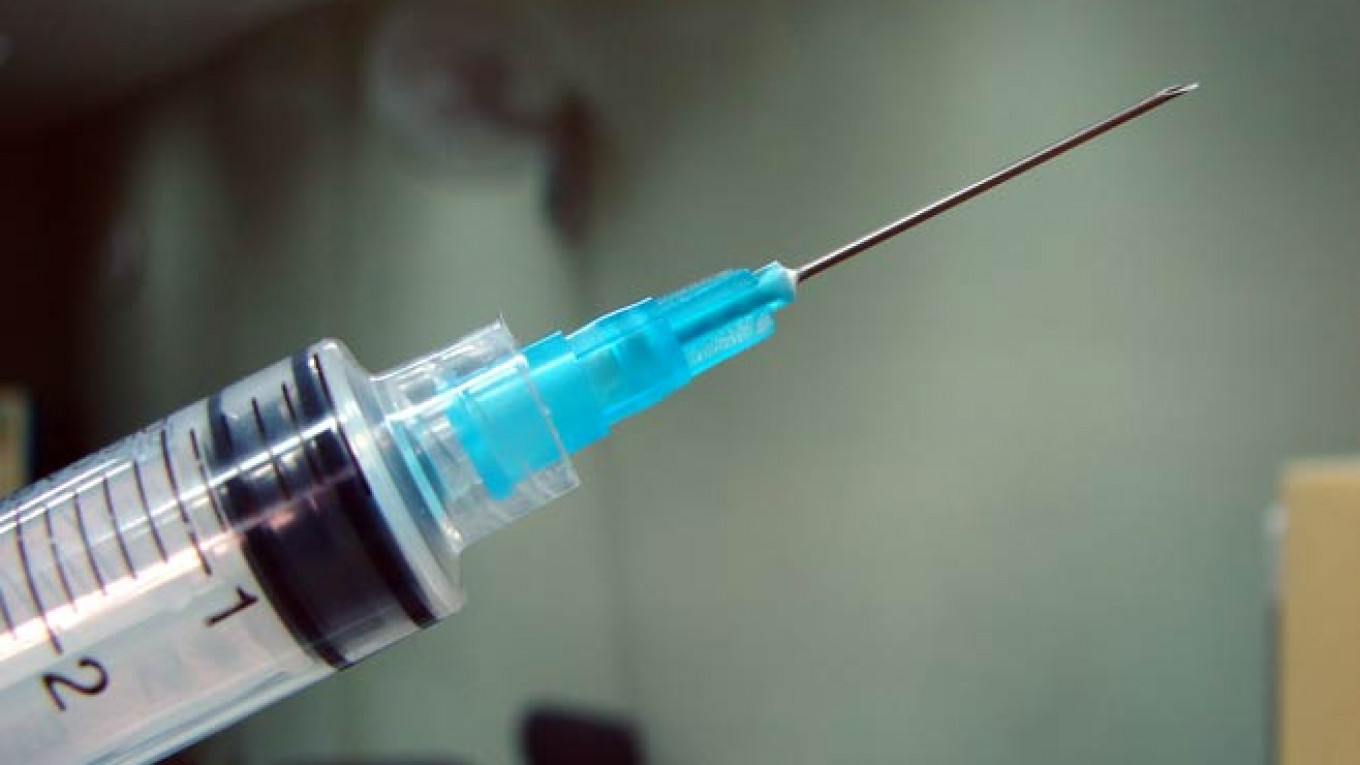A plant to produce vaccines is opening next week thanks to support from the state-owned giants of the domestic economy: the development bank VEB and defense conglomerate Rostec.
Making vaccines is a lucrative business because the government is providing guaranteed demand with its nationwide vaccination program, allocating 6.2 billion rubles ($172 million) for it last year.
"I heard they were planning to take up to a third of the vaccine market," said Sergei Shulyak, chief of the medical industry consultant DSM Group.
The opening of the Fort plant in Ryazan on April 16 also comes as part of the country's effort to reduce its dependence on foreign pharmaceutical producers as a matter of national security and affordability. The decline in the ruble value since the start of the year has sent up the price of imported drugs by more than 10 percent.
VEB is the key financial backer of constructing Fort, covering 90 percent of the 4.8-billion ruble cost.
For Rostec, which is a producer of defense hardware and various engines, it is the first venture in the pharmaceutical industry. Rostec takes part in the joint company through its pharmaceutical arm, RT-Biotekhprom.
VEB and RT-Biotekhprom declined to comment immediately Thursday afternoon.
Fort developed its product range, including flu vaccine Ultrix, in cooperation with the Russian Academy of Medical Sciences, according to a statement from the Ryazan regional government.
Construction of the plant began in November 2011.
In producing vaccines, Fort will compete with some other domestic firms, such as state-owned Mikrogen and privately controlled Petrovax.
Mikrogen, the country's largest vaccine maker, said last week its profit quadrupled to 1 billion rubles last year, compared with 2012, Vedomosti reported. It is the fifth-largest Russian drugmaker by revenue, which came to 7.6 billion rubles last year.
Mikrogen chief Pyotr Kanygin estimated that the company accounted for 70 percent of vaccines the government bought for its National Vaccination Calendar program last year.
Foreign companies have also been elbowing for a place on the market. U.S.-based pharmaceutical heavyweight Pfizer looks like a front runner in the planned 4-billion-ruble tender for a pneumococcal vaccine, the latest addition to the state vaccination program, Vedomosti reported last month. The company wants to hire Petrovax to make the vaccine locally, a prerequisite to compete in government biddings.
Pfizer has helped Petrovax to install a production line at a plant just outside Moscow for the Prevenar 13 vaccine, which is intended to prevent such diseases as pneumonia and meningitis. The line began operating in 2012.
British drugmaker GlaxoSmithKline in November 2010 teamed up with another Russian partner, Binnopharm, owned by Sistema, to produce a slate of vaccines, such as the pneumococcal vaccine Synflorix.
Contact the author at [email protected]
A Message from The Moscow Times:
Dear readers,
We are facing unprecedented challenges. Russia's Prosecutor General's Office has designated The Moscow Times as an "undesirable" organization, criminalizing our work and putting our staff at risk of prosecution. This follows our earlier unjust labeling as a "foreign agent."
These actions are direct attempts to silence independent journalism in Russia. The authorities claim our work "discredits the decisions of the Russian leadership." We see things differently: we strive to provide accurate, unbiased reporting on Russia.
We, the journalists of The Moscow Times, refuse to be silenced. But to continue our work, we need your help.
Your support, no matter how small, makes a world of difference. If you can, please support us monthly starting from just $2. It's quick to set up, and every contribution makes a significant impact.
By supporting The Moscow Times, you're defending open, independent journalism in the face of repression. Thank you for standing with us.
Remind me later.






